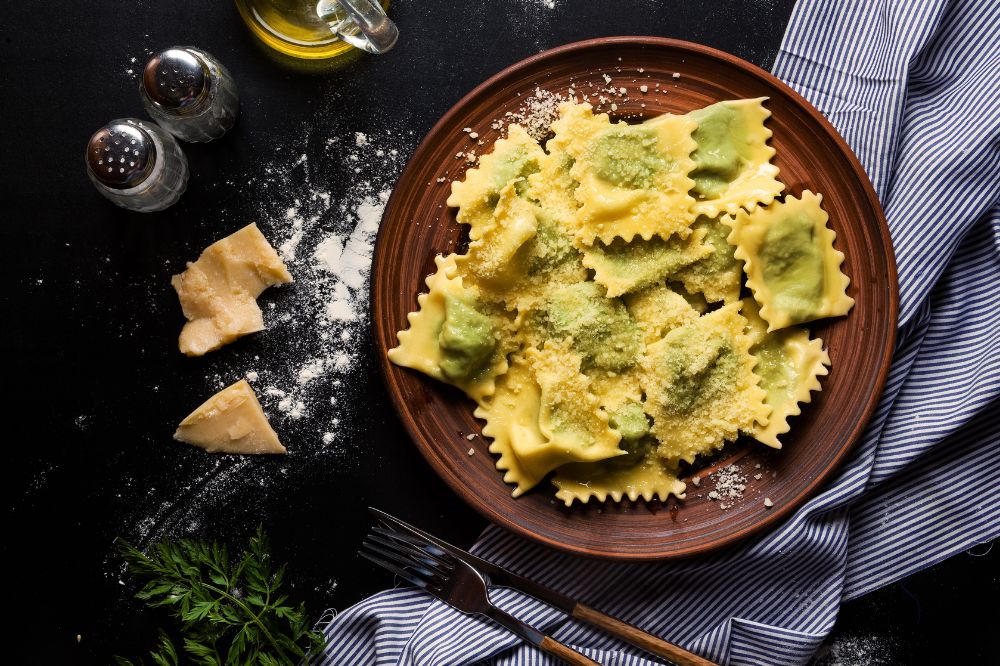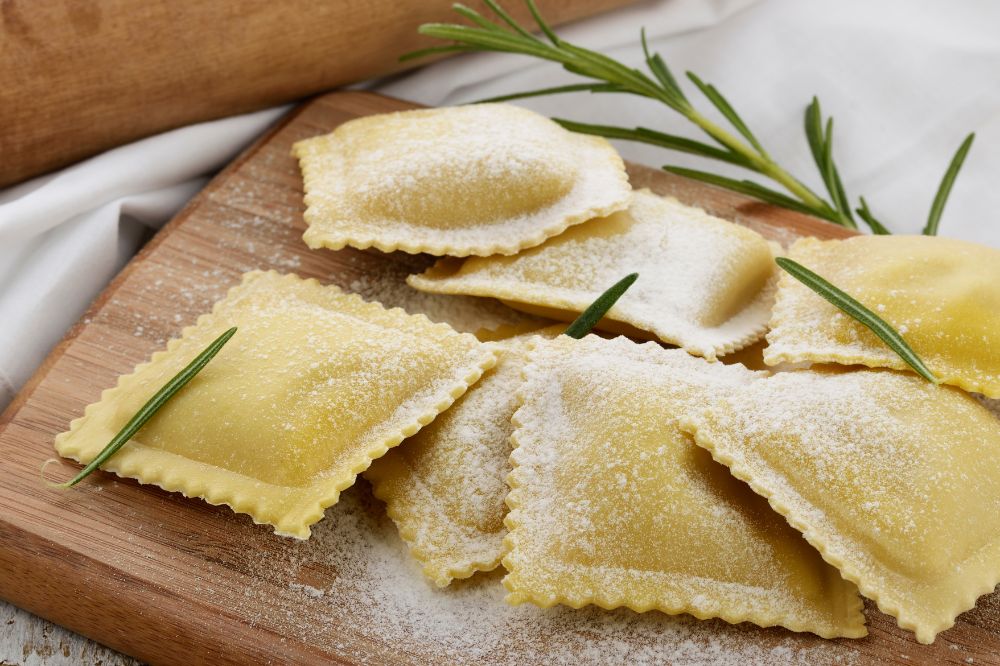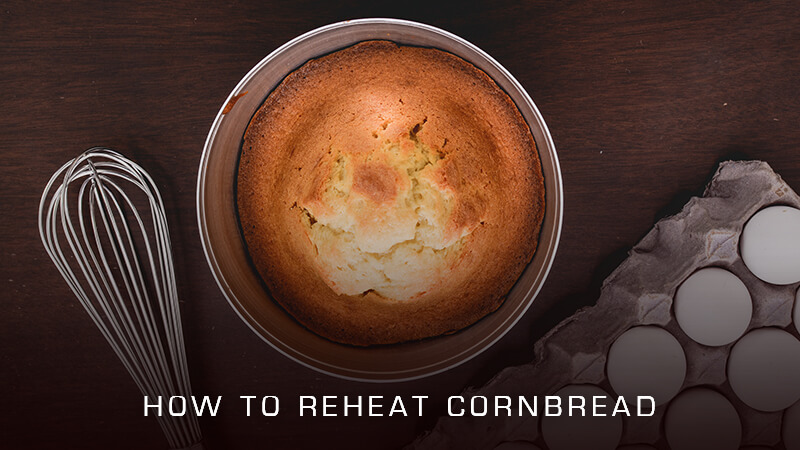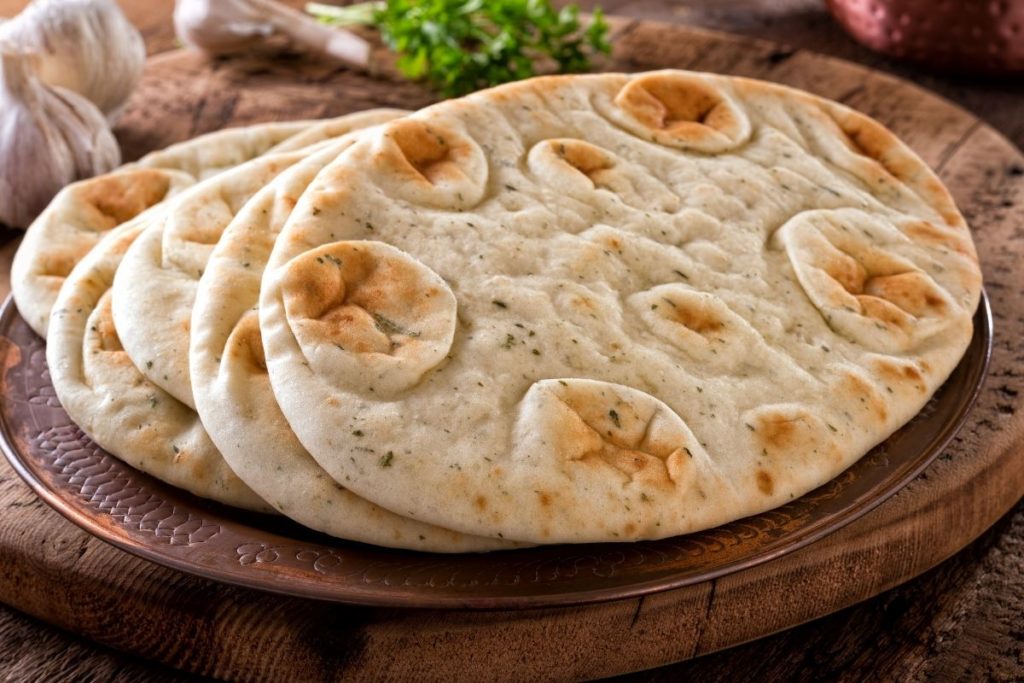Can You Freeze Ravioli?

Making fresh ravioli is a labor of love. It requires preparing multiple ingredients and making the pasta dough from scratch, but the reward is definitely worth it. With this being time-consuming, making a huge batch ahead might be your best bet. This leaves you to wonder, “can you freeze ravioli?”
Don’t let your ravioli go bad. Thankfully, we’ve got the down-low on the much-anticipated question. The best way to keep ravioli fresh is to store it in the freezer. We’re here to let you know how.
What is Ravioli?
Ravioli is a type of pasta that has a filling inside. Think of this as an Italian dumpling of sorts, with the filling enveloped between two layers of thin pasta dough.
There are various filling types and even sauces that complement ravioli. Its fillings include traditional ground meat, cheese, and vegetables. Sauces, on the other hand, include the classic tomato sauce, brown butter and sage, basil pesto, or white wine butter sauce, to name a few.
So, Can You Freeze Ravioli?
Simply put, yes, you can freeze ravioli. Frozen fresh, the ravioli can be kept in the freezer for up to six months. Meanwhile, cooked ravioli can be stored in the freezer for up to three months.
As you might have noticed, the quality of the ravioli significantly affects how long can be preserved and stored in the freezer. While you can certainly store cooked and fresh ravioli in the freeze, it’s worth noting that fresh ravioli is best. Not only does this preserve the fresh taste and keep it from going soggy when reheated, but its storage time is also quite long.
Here’s How to Freeze Ravioli
There are different ways how you can freeze ravioli. This depends on whether you’re freezing fresh or cooked ravioli. We have laid out the best methods you can use here.
Storing Fresh Ravioli
- Start by making your ravioli as usual.
- On a baking sheet lined with parchment paper, place as many raviolis as you can in a single layer. Make sure that the ravioli do not touch one another.
- Flash freeze these onto a baking pan by placing them in the freezer. This may take around two hours or so until they’re completely frozen. Flash-freezing them prevents the ravioli from sticking to one another when placed in a large container.
- Once the ravioli are frozen solid, take them out of the baking pan and place them into heavy-duty freezer bags, carefully pushing air out to prevent moisture and icicle formation inside the bags.
- Put the freezer bags in the freezer again and take these out when you need them.
Storing Cooked Ravioli
- If you already have cooked ravioli on hand, chances are it’s already cooked in its own sauce. Portion out the cooked ravioli into containers to make it easier to reheat.
- Before you close the lid of these containers, allow the ravioli to be completely cooled. This prevents unwanted bacteria buildup and the pasta dish from being contaminated.
- Seal the containers once the cooked ravioli is cool.
- Place the ravioli in the freezer and take a container out when needed.
Tips on Freezing Ravioli
- Freeze Ravioli Away from the Freezer Sides
Unfortunately, ravioli is still prone to getting freezer burns despite all the caution you take. When this happens, the pasta dough tends to crack and make it less than wonderful.
One tip that can greatly address this is keeping the ravioli away from the sides of the freezer. Instead, place the container or the freezer bags right in the center of your freezer. Doing so keeps them away from the frost that usually forms at the edges.
- Add an Extra Layer of Protection
Placing them in heavy-duty freezer bags might be enough. However, there are ways to ensure that your ravioli won’t get the dreaded freezer burns. One is to cover the fresh ravioli in a healthy sprinkling of semolina or even cornmeal before freezing. This keeps them from sticking to one another.
While you’re at it, you might want to go the extra mile and place the freezer bags filled with flash-frozen ravioli into a large container. This acts as another barrier against freezer burn.
- Keep Cooked Ravioli in the Sauce
If you have already whipped up a batch of cooked ravioli, you should always freeze it in the sauce rather than separating it. This prevents the pasta from drying up and cracking inside the freezer.
Final Thoughts
Don’t let your hard work in the kitchen go to waste. Now that you know you can freeze ravioli and how to go about this, you can keep this pasta dish in your freezer and have a stash when you need it any time of the day. Be sure to follow the proper storage guidelines to keep them in the best condition as long as possible.
you may also like
well hello there!

Hi, I'm Linda thanks for stopping by! We're so happy you're here. If you're a foodie and love to cook from home - you're in the right place..
LEARN MORE
free newsletter
Join the mailing list and receive our free newsletter!
recent posts
let's be social
search site
Recipe Marker
Recipe Marker provides you with the best information about home cooking tips, recipes, ingredient substitutes and more. Check out our blog to see the latest articles.
Copyright © 2024 Recipemarker.com | All Rights Reserved | Privacy | Disclaimer | Contact








